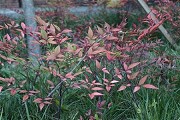广东专插本英语必考时态汇总(二)
许多同学在广东专插本考试中,英语考试都是重中之重,那今天广东专插本特意为咱们带来广东专插本英语必考时态汇总(二)的详细讲解,期望能协助咱们顺畅备考哦。预祝咱们考试成功哦。
广东专插本英语必考的时态用法汇总:(四)一般将来时
1、一般将来时的界说
一般将来时标明在现在看来即行将产生的动作或存在的状况。常用时刻副词tomorrow, soon或短语next year / week / month, in a few days, in the future, sometime 做状语。如:
What will you do this afternoon. 你今天下午干什么?
We will have a meeting tomorrow. 咱们明日要开会。
He is going to study abroad next year. 明年他要出国学习。
2、一般将来时的结构及应用
(1) shall / will + 动词原形。标明行将产生的动作或存在的状况。特别是标明客观性的工作或在某条件下要产生的工作,只能用此结构。如:
What shall we do if he doesn’t come? 假如他不来,咱们该怎么办?
Will you be free this evening? 今天晚上有空吗?
I think he will tell us the truth. 我想他会告知咱们真实情况的。
(2) be going to + 动词原形。标明已经方案或安排好了的工作,也可标明有痕迹标明肯定要产生的工作。如:
We are going to have a meeting to discuss the matter this evening. 今天晚上开会讨论这件工作。
Look at the black clouds over there. I think it is going to rain soon. 看一看那边的乌云,我想天要下雨了。
There is going to be an English evening this week. 本周要举行一个英语晚会。
(3) be to + 动词原形。标明一种惯例性的活动或注定要做的工作。如:
Who is to clean the classroom today? 今天该谁清扫教室了?
When are you to return your library book? 你什么时分要还图书?
The bridge is to be completed by the end of this year. 这渡桥该在今年年底前完工。
(4) be about to + 动词原形。标明就要做或正好要做的工作。往往暗含一种时刻上的巧合,因此,句子不能再用时刻状语。如:
Don’t leave. Li Lei is about to come. 不要走了,李蕾就要来了。
Be quiet. The concert is about to start. 安静下来,音乐演唱会就要开始了。
(5) be +现在分词。标明行将产生的动作或存在的状况。这个句型中动词首要是瞬间动词:come, go, leave, arrive, begin, start, stop, close, open, die, join, borrow, buy等。如:
Go ahead, and I’m coming. 走前面一点吧,我就来。
The dog is dying. 那条狗要死了。
Hurry up. The shop is closing. 快点,商铺就要关门了。
(6) 一般现在时。标明一种严格按照方案进行的动作。比方说,上课、飞机起飞、火车离站等。如:
Don’t hurry. The meeting starts at a quarter past eight. 不要匆忙,回忆八点过一刻开始。
The bus goes back at four thirty. 汽车四点回来。
广东专插本英语必考的时态用法汇总:(五)一般曩昔时
1、一般曩昔时的界说
一般曩昔时标明曩昔某一时分或某一段时刻所产生了的工作或存在的状况。常与曩昔时刻yesterday, this morning, just now, a moment ago, in May, last night / year / week, once upon a time, the other day, before …, when – clause, in the past连用。如:
What did you do yesterday? 昨天你干了什么?
I met Lin Tao this morning. 今天上午我会到了林涛。
I was there a moment ago. 方才我在那儿。
2、一般曩昔时的应用
(1) 标明曩昔某时所产生的动作或存在的状况。如:
Liu Ying was in America last year. 刘英去年在美国。
Jim rang you just now. 吉姆方才给你打了电话。
(2) 标明曩昔经常或反复产生的动作。常接时刻副词often, usually, always, sometimes, every day / week, etc. 如:
We often went out for a walk after supper. 咱们曩昔常在晚饭后漫步。
We usually played together. 咱们一般一同玩。
一般曩昔时对谓语动词的要求
一般曩昔时的谓语动词要用动词的曩昔式。动词曩昔式的构成分规矩改变和不规矩改变两种形式,不规矩改变一般需要逐一回忆,规矩改变则遵循以下准则:
(1) 一般在动词后加-ed。如:
play-played, offer-offered, weigh-weighed, destroy- destroyed, sign-signed.
(2) 在以字母e结束的动词后,只加-d。如:
like-liked, provide-provided, hate - hated, date-dated。
(3) 在以“子音字母+y”结束的动词后,则改y为i,再加-ed。如:
supply-supplied, fly-flied, study- studied.
(4) 在以单短元音的重读闭音节结束且,结束只有一个子音字母的动词后,双写最终一个子音字母,再加-ed。如:
plan-planned, refer-referred, regret-regretted, ban-banned.
特别阐明
有些动词的曩昔时,如:expect, hope, intend, plan, wanted 等一般曩昔时,后接不定式的完结时;或它们的曩昔完结时接不定式的一般式,都可标明曩昔未曾实现的目的、计划或期望。如:
I hoped to have been invited to his wedding party. -I had hoped to be invited to his wedding ceremony. 我本期望他来约请我参与他的婚礼。
I intended to have joined their games. -I had intended to join their games. 我本计划参与他们的比赛。
广东专插本英语必考的时态用法汇总:(六)曩昔将来时
1、曩昔将来时的界说
曩昔将来时首要用于标明曩昔某个时分看来行将产生的动作或存在的状况。如:
He said he would come here next Friday. 他说他下周星期五来这儿。
I knew that he would help us when we were in trouble. 我知道当咱们陷入困境时它会协助咱们。
2、曩昔将来时的结构
(1) would + 动词原形。如:
She told us that she would try her best to catch up with other classmates this term. 她告知咱们说她将全部努力在本期赶上其他同学们。
When you asked Li Lei for help, he would never refuse you. 曩昔当你请她帮忙时,他绝不会回绝。
(2) was / were going to + 动词原形。如:
He told us that he was going to attend the meeting. 他告知我说他要参与那次会议。
He said that I was going to be sent to meet her at the railway station. 他说行将拍我去火车站接她
(3) was / were to + 动词原形。如:
The building was to be completed next month. 这座建筑改在下个月竣工。
Li Lei was to arrive soon. 李蕾很快就要到了。
(4) was / were about to + 动词原形。如:
We were about to leave there when it began to rain heavily and suddenly. 就在咱们要离开时,天突然下起了大雨。
He was about to have lunch when the bell rang. 就在他要吃中饭的时分,门铃响起来了。
(5) was / were +现在分词。如:
He was leaving the next day. 他第二天要走了。
We were informed that the leaders were coming to our school soon. 咱们接到告诉说领导们很快要来咱们校园。
3、曩昔将来时的用法
(1) 曩昔将来时,一般用于主句为曩昔时的宾语从句中。如:
He said he would stay with us. 他说他要与咱们呆在一同。
He said he would never go there again. 他说他绝不会再去那儿。
(2) 曩昔将来时,用于虚拟语气中,如:
If I were you, I would not do that. 要是我是你的话,我就不会那样做。
If he were here, he would show us how to do it. 假如他在这儿,他就会向咱们展现该如何做了。
拓展
was / were going to + 动词原形;was / were to + 动词原形;was / were about to + 动词原形等结构都可表达当时一种未曾实现的目的或计划。如:
The conference was going to be held the next month. 会议下个月开。
We were to have our class at eight. 八点咱们该上课了。
I was about to tell him about it when Wu Dong got in. 就在我要告知他时,吴东进来了。
广东专插本英语必考的时态用法汇总:(七)现在进行时
1、现在进行时的界说
现在进行时首要用于标明现在正在进行的动作,有时也可标明现阶段在进行的动作。如:
The teacher is giving us an English lesson. 教师正在给咱们上英语课。
The farmers are getting in their crops. 农民们正在收割庄稼。
We are making preparations for the conference. 咱们一直在为会议作准备。
2、现在进行时的结构
现在进行时由“am / is / are + 现在分词”构成。如:
I’m studying at Yu Cai Senior Middle school. 我在育才中学读书。
He is writing on the desk. 他再课桌上写字。
They are talking about their visiting the Great Wall. 他们在议论游长城的工作。
【阐明】动词现在分词的构成方法:
(1) 一般在动词后加-ing。如:
say-saying, play-playing, think-thinking, study-studying, teach -teaching, blow-blowing, build-building.
(2) 动词若以-e结束, 则去e再加-ing。如:
love-loving, make-making, guide-guiding, date-dating.
(3) 在以单短元音的重读闭音节结束,且结束只有一个子音字母的动词后,双写最终一个子音字母,再加-ing。如:
begin-beginning, regret-regretting, plan-planning, ban - banning.
(4) 在以ie结束的动词后,改ie为y,再加-ing。如:
lie-lying, die-dying, tie-tying.
(5) 在以-c[k] 结束的动词后加-king。如:
picnic-picnicking, panic-panicking.
3、现在进行时的应用
(1) 标明现在正在产生或进行的动作。如:
They are planting trees on the mountain. 他们在山上栽树。
Mother is preparing supper in the kitchen. 母亲在厨房做晚饭。
(2) 有些非持续性动词的进行时可以标明动作行将进行或产生,或标明动作的重复。如:
He is joining the army. 他要从军了。
They are buying the house. 他们要买那座房子。
(3) 当现在进行时中有always, forever, constantly, continually修饰时,标明说话人的欣赏或厌烦的爱情。如:
Why is the baby always crying? 为什么那个老是在哭。
They are always helping us. 他们总是协助咱们。
留意:标明状况、感觉、心理活动的静态动词,一般不使用语进行时态。
4、现在进行时与一般现在时的区别
(1) 现在进行时强调现在正在进行的动作,而一般现在时强调经常性或习惯性的动作。如:
I’m reading a story now. 我在看一个故事。(现在正在干的工作)
I read stories in my spare time. 我有空时看故事。(经常性的行为)
(2) 现在进行时强调现阶段一直在进行的动作,而一般现在时只表动作的重复,而不标明动作的持续。如:
What are you doing these days? 这几天你在干什么?
They are learning English in the summer holiday. 他们暑假在学英语。
They read English every day. 他们每天读英语。
They play volleyball every Sunday. 他们每周星期天都打排球。
(3) 标明短促动作的动词(如 jump, knock, beat, pick, skip等)的进行时,标明动作的重复。如:
The girls are jumping over there. 女孩子们在那边跳。
His heart is beating fast. 他的心脏跳得很快。
(5) 某些标明期望或主意的动词(如hope, wonder, want等)的进行时可以标明委婉谦让。如:
I’m wondering whether you can help us now. 我不知道你现在能否给咱们帮一忙。
I’m hoping that you will succeed. 我正在期望你成功呢。
以上就是关于广东专插本英语必考时态汇总(二)的简要介绍了,期望咱们可以获得自己心仪的成果。如有更多想要知道广东的相关资讯,如广东专插本院校、复习备考、专业目录。敬请重视广东专插本。
- 他们喜欢的文章
- 中职专业大学栏目文章
















